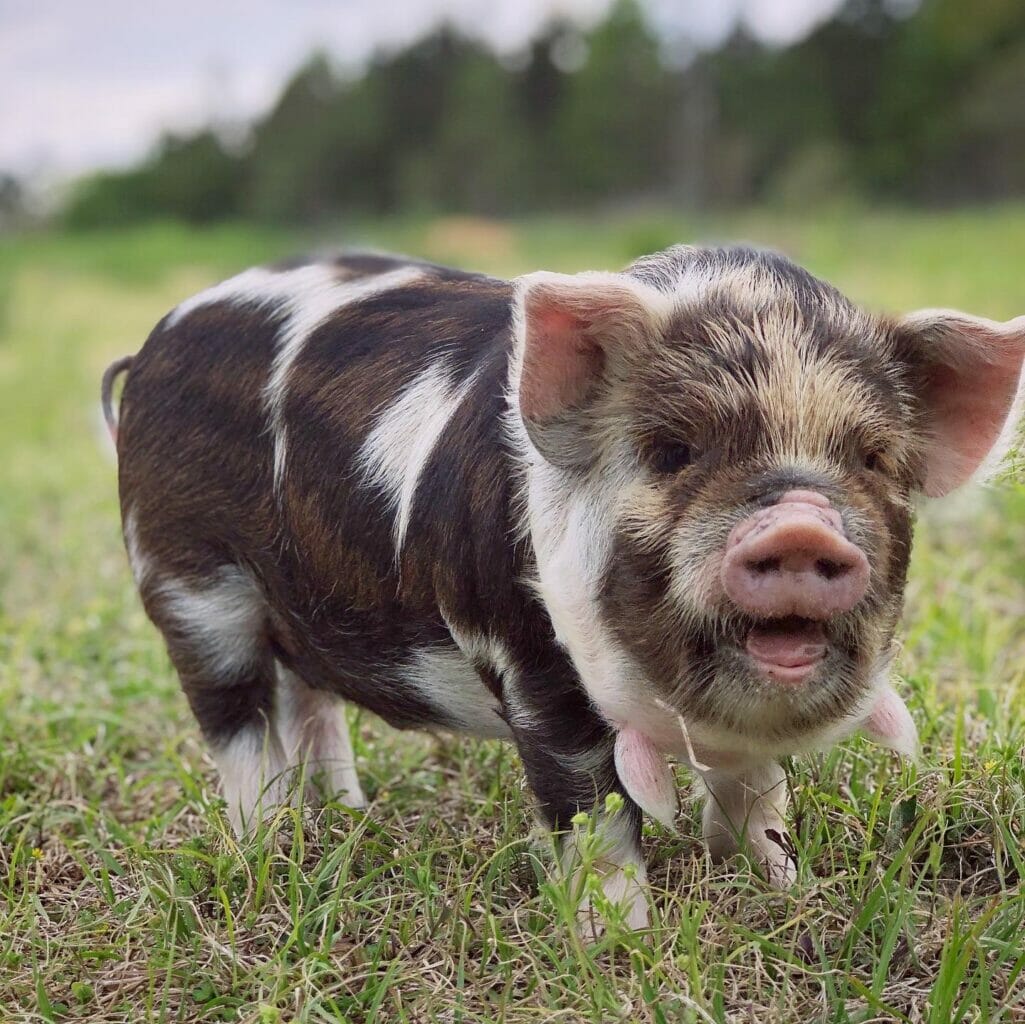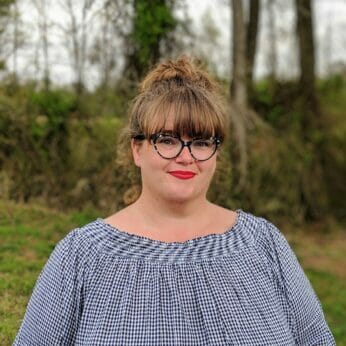Kunekune pigs are the secret to one North Carolina farmer’s success

When Rachel Herrick bought a 47-acre farm in Cameron, NC, she had her work cut out for her. The soil was stripped of nutrients, dry after decades of tobacco farming. But Herrick was undeterred. Farming was in her roots, and with some work and regenerative practices, she knew she could change the land for the better.
And she has, making gradual but steady progress over the last seven years. She even named her land Slow Farm. But she hasn’t undertaken this transformation alone. Instead, she’s had a team of helpers by her side: 25 roly-poly pigs, her secret weapon for soil health.
Herrick keeps kunekune pigs, a breed domesticated in New Zealand—kunekune means “fat and round” in Maori—and they are perfect for the small farmer. The pigs happily chew their way through the broadleaf weeds that pop up across her fields, which other livestock won’t touch. “They keep pasture systems balanced so that unpopular plants can’t just take over,” says Herrick.
Herrick grew up working on her family’s 60-acre farm in Maine, where they raised and sold beef, pork, poultry, eggs and produce. Like many farming families, her parents encouraged her to leave the business to go to college. After graduate school, she spent a decade pursuing a career in mixed media art before realizing that farming themes were at the forefront of her work.
“It only took me, like, 10 more years to realize that it was bananas of me to make art about a thing that I knew how to do,” she says. “[I could] be part of the actual change that I longed for.”

Rachel Herrick. Photography by Christine Hall.
So Herrick put away her art supplies and returned to North Carolina, starting Slow Farm. The property was a foreclosure that had been unoccupied for a decade, but Herrick was intrigued by the listing. It included a house, two barns and a pond, and it was already enclosed with a fence, so the foundation was there. She says she knew she was home halfway up the driveway.
She brought in goats to take care of the overgrowth and give the soil a boost of nutrients. After a year and a half, she saw significant improvements in the pastures. But goats only eat overgrowth at their knee level, so she needed livestock to take care of the lower weeds.
That’s when she turned to kunekune pigs. Kunekunes are small, docile pigs with short, upturned snouts that prevent them from uprooting the dirt like traditional hogs. When trying to restore topsoil, the last thing you want is to till it up, so they have the perfect skills for the job. They pull their weight on her farm by simply eating and pooping.
“They munch broadleaf weeds and leave behind this beautiful, pretty pH-neutral poo that the dung beetles go crazy ([for],” she says. “If you can get your dung beetles excited about the project, they’ll do so much of the work for you. They make all the [pig] poop into tiny little balls and then tuck it like an inch below the soil for you. That’s exactly what you want if you’re trying to build topsoil.”
Maori people in New Zealand domesticated kunekunes to live among the villagers, so they are naturally laid back and friendly. They are popular among small farms and family-owned operations because they eat about one-fourth of the grain needed for a standard pig and are happy to roam fenced pastures without trying to escape.
“Kunes don’t generally push fences, which is another big deal. Farmers spend a lot of time fixing fences, and we don’t generally love it,” she says.
For Herrick, the pigs are an integral part of the farm, contributing to a holistic environment. That’s what she was seeking when she started Slow Farm, a place to move away from the farming techniques she grew up with and lean into practices that worked with the land instead of against it.
“I’m fascinated by the history of farming in terms of what it can teach us about slower, more sustainable methods,” says Herrick. “These are folks that took their time, so they didn’t have to repeat themselves and they weren’t trying to use a lot of inputs they didn’t have.”
Herrick keeps a permanent herd of 25 kunekunes, and she also breeds them for other farms wanting a better way to manage their lands. They are still a relatively rare breed, so she is careful to keep the diversified bloodlines she has brought in from places like California, Pennsylvania and Virginia to ensure her pigs are healthy and genetically diverse.
They live among her other livestock, including chickens, Ancona ducks, geese and guineas, and she says the pigs are easy to please and get along with everyone. Give them a pasture and some grain and they’ll happily do the work.
They make wonderfully pets, New Zealand
N
Yes I would like to get in touch with this lady about her pigs thanks. email- nctrk957@gmail.com